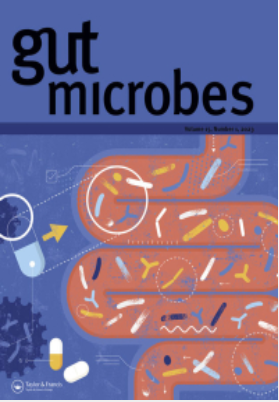Targeted modulation of intestinal barrier and mucosal immune-related microbiota attenuates IgA nephropathy progression.
IF 12.2
1区 医学
Q1 GASTROENTEROLOGY & HEPATOLOGY
引用次数: 0
Abstract
IgA nephropathy (IgAN) is related to the balance of gut microbiota. However, it is unclear whether changes in the gut microbiota can cause IgAN or attenuate its progression. This study employed IgAN and human microbiota-associated (HMA)-IgAN models to investigate the impact of IgAN on gut microbiota alteration and the mechanisms by which gut microbiota might trigger IgAN. Furthermore, this study examined the effects of chitooligosaccharides (COS) and COS formulation (COSF) with microbiota-targeting function on enhancing intestinal barrier and renal functions. These results revealed that IgAN led to a reduction in α-diversity and structural alterations in the gut microbiota, characterized by an increase in Shigella sonnei, Streptococcus danieliae, Desulfovibrio fairfieldensis, and a decrease in Bifidobacterium pseudolongum and Clostridium leptum. There was also an imbalance in intestinal B-cell immunity and a decrease in the level of tight junction proteins (ZO-1 and Occludin). Intestinal barrier and mucosal immune-related microbiota (Clostridium leptum, unclassified Lachnospiraceae NK4Al36 group, unclassified Clostridia vadinBB60 group, unclassified Oscillospiraceae, and unclassified Roseburia) were enriched through targeted modulation with COS/COSF, enhancing intestinal ZO-1 expression and reducing APRIL/BAFF overexpression, thereby reducing renal damage in IgAN. In conclusion, this study clarified the kidney-gut crosstalk between gut microbiota and IgAN, providing scientific evidence for developing microbiota-targeted food interventions to improve IgAN outcomes.求助全文
约1分钟内获得全文
求助全文
来源期刊

Gut Microbes
Medicine-Microbiology (medical)
CiteScore
18.20
自引率
3.30%
发文量
196
审稿时长
10 weeks
期刊介绍:
The intestinal microbiota plays a crucial role in human physiology, influencing various aspects of health and disease such as nutrition, obesity, brain function, allergic responses, immunity, inflammatory bowel disease, irritable bowel syndrome, cancer development, cardiac disease, liver disease, and more.
Gut Microbes serves as a platform for showcasing and discussing state-of-the-art research related to the microorganisms present in the intestine. The journal emphasizes mechanistic and cause-and-effect studies. Additionally, it has a counterpart, Gut Microbes Reports, which places a greater focus on emerging topics and comparative and incremental studies.
 求助内容:
求助内容: 应助结果提醒方式:
应助结果提醒方式:


